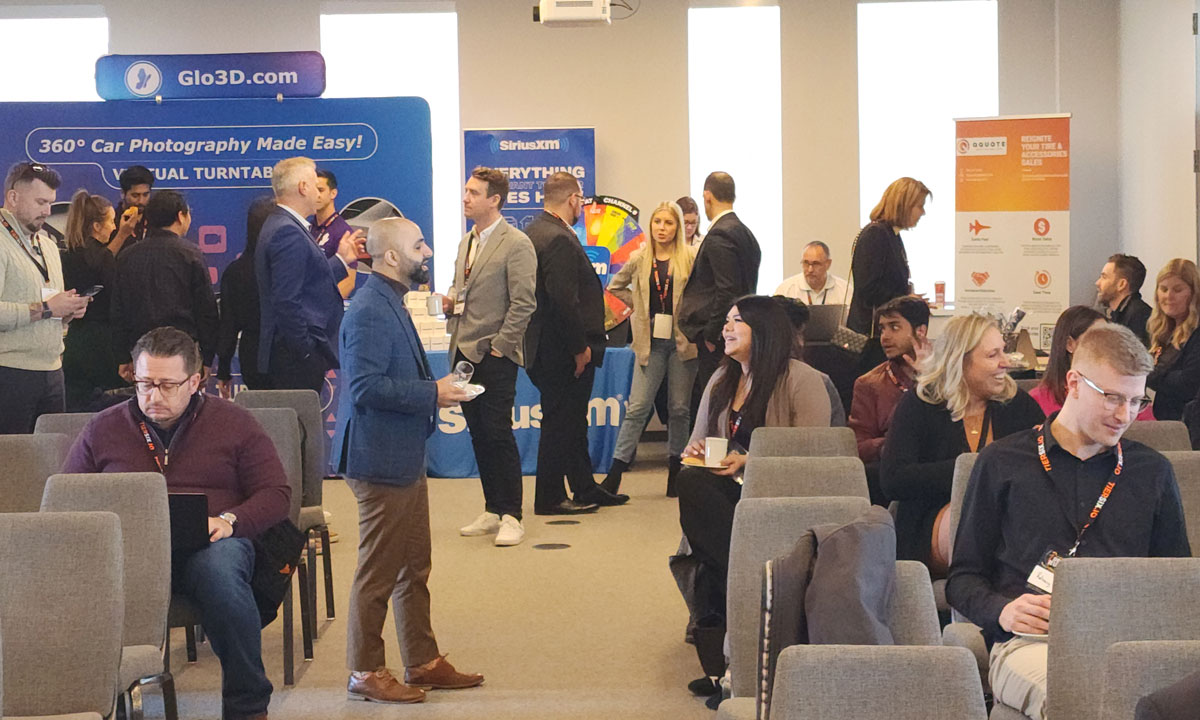
Rick Hansen wants all businesses — including car dealerships — to improve accessibility for people with disabilities. But it’s not just about building code compliance, it’s about real business opportunities.
An iconic Canadian legend who has fought his whole life to prove people with disabilities can do anything, is now fighting to ensure they can go anywhere — and fully participate in life.
Rick Hansen is known to many Canadians as the “Man in Motion” for travelling the world in his wheelchair to raise money for spinal cord research. He recently briefed auto industry leaders about the “Rick Hansen Foundation Accessibility Certification Program” that aims to help improve accessibility of the built environment in Canada.
Hansen said the built environment is the term for the “places and spaces that people live, work, play and learn. They are fragmented in terms of access,” said Hansen.
The Rick Hansen Foundation Accessibility Certification is a rating system that uses trained professionals to evaluate the meaningful access of commercial, institutional, and multi-unit residential buildings and sites.
Once rated, a site may be certified at one of two levels: RHF Accessibility Certified, or RHF Accessibility Certified Gold. Organizations meeting those standards can publicly promote their level, and purchase a window decal or plaque to showcase the location is accessible.
The organization is also working with colleges and universities across Canada to deliver training courses for experts who can visit facilities and certify them.
The briefing was organized by Todd Bourgon, TADA’s Executive Director, and took place at the ACE Conference and Expo held in April in Niagara Falls, Ont. “Accessibility will look very different in the future,” said Bourgon in his opening remarks, after which he invited Hansen to “have an open dialogue with leaders in our business.”
Canadian auto dealer was on hand for that session and interviewed Rick Hansen about his plans.
“It’s a pleasure to be able to speak to the auto industry,” said Hansen in his remarks. He said the accessibility certification program is a response to the fundamental barriers people face today. “We are here to remind people that according to the World Health Organization there are more than 1.3 billion people around the world with disabilities.”
That equates to one in seven Canadians today, and that will soon rise to one in five. With the baby boomer generation aging, Hansen said the number of people with some form of disability is rising dramatically.
This means all business leaders — including car dealers — need to consider how this growing segment of our population can access their facilities to continue to buy their goods and services. “Ninety-two per cent of Canadians believe accessibility is a basic human right, not a privilege,” said Hansen.
He added: “Why shouldn’t the auto industry be the first in? You guys have been key early adopters of mobility solutions. You are involved in the community and do so much great work. As dealerships you provide products and services to people so they can have quality of life.”
For Hansen, it’s important that all businesses really make the connection that it’s in their business interests to provide meaningful access, so it’s not just viewed as an expense or hassle to modify their facilities.
In an interview after the meeting, Hansen said granting greater access to people with disabilities has many economic benefits, such as enabling them to buy more goods and services. And also providing better access allows more people with disabilities to work there.
“From my personal history, buying my first Ford Bronco from Brown Brothers Ford in B.C. or my GM short block truck, my Honda Civic, or my Toyota, dealerships are where communities are,” said Hansen.
Dealers are involved in philanthropy, he said, and are leaders in the community. “I see dealerships as a convening place where they help people get in motion. They provide mobility solutions.”
“I wouldn’t have been able to do what I do, if it wasn’t for the auto industry. My vehicle was my pathway to freedom and independence,” said Hansen. “It helped me live to my full potential. That ultimately led to the ability to do my Man in Motion World Tour. It makes sense that in this journey together, that we continue to keep thinking about accessibility and that we forge a way we can work together.”
For local car dealers, he said if they get motivated to remove barriers, they can make a real difference. “Get your dealership assessed, see where you are at. Create a plan to get as accessible as possible. When you want to hire people, look to people with disabilities in your community, and see if their abilities can shine to help make your business successful,” said Hansen.
He added that he is also really excited about the emergence of new technologies like connected vehicles and eventually autonomous vehicles. “People with disabilities will be the greatest beneficiaries.”
“There are no boundaries that can’t be crossed,” said Hansen. “Never, ever give up on your dreams.”
















